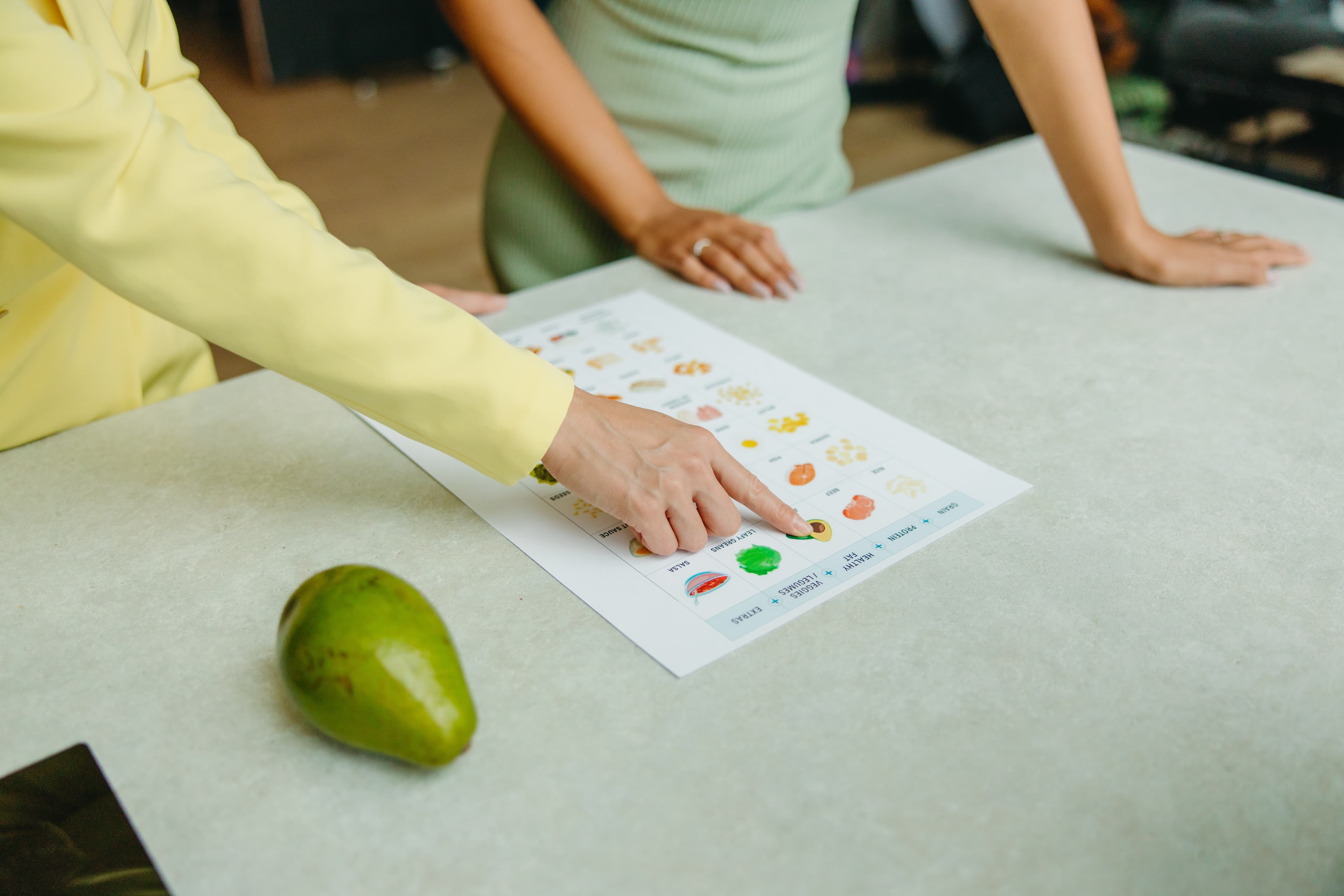Chronic kidney disease, or kidney failure, affects up to 34% of people aged 65 and older. The condition can’t be cured, but healthy lifestyle changes can relieve symptoms and help your kidneys function better.
One of the most effective treatments for kidney failure is eating a healthy diet. To learn more about the best diet for kidney failure, we reached out to several experts, including registered dietitian Meaghan Greenwood, RD, and board-certified renal nutrition specialist Brandy Winfree, MBA, RD, CSR, LDN.
Below, we provide a guide for improving your or your loved one’s kidney health with nutrition.
What is Kidney Failure?
“Kidney failure occurs when your kidneys are unable to properly filter waste and excess fluids from your blood,” Greenwood explains. “This can lead to a buildup of harmful substances in your body and disrupt the balance of essential chemicals.”
Without treatment, this can affect your health, triggering symptoms like fatigue, swelling, and changes in urine output.
How Does Diet Impact Kidney Failure?
The kidneys’ main role is to filter waste from the blood. So the foods and beverages you consume directly impact their function.
“The kidney diet is designed to decrease stress on your kidneys by decreasing their workload,” Winfree says. “For example, salty food causes fluid retention, increasing stress on your kidneys. This is because they have a hard time keeping up with demand when there is too much fluid to excrete.”
Limiting or avoiding certain foods helps your kidneys function optimally, reducing the risk of complications.
The Best Diet for Kidney Failure - A Step-by-Step Guide
Step 1: Talk to Your Doctor or a Registered Dietitian
Before starting a new diet, make an appointment with your doctor or a registered dietitian. Everyone has unique nutritional needs, so what might work for one person won’t necessarily work for you.
Before making recommendations, your provider assesses your kidney function. This involves several tests, including urinalysis, blood work, and an ultrasound. If the results of these tests indicate below-average kidney function, dietary changes can help.
Step 2: Eliminate Junk Food from Your Diet
“Eating junk food and foods high in salt, sugar, and unhealthy fats worsen kidney function,” Greenwood says. “These foods can increase blood pressure, strain your kidneys, and contribute to inflammation.”
Winfree concurs, adding that “highly processed foods, especially lunch meats, dark colas, and dairy products, create large amounts of waste. This waste builds up over time, making it difficult for dysfunctioning kidneys to clear it from the blood.”
Step 3: Focus on Balanced Nutrition
Luckily, there are plenty of foods that can support your kidneys. Greenwood recommends focusing on the following:
High-quality protein sources
Lean meats, poultry, fish, and eggs are ok in moderation. “These foods provide essential amino acids without overburdening your kidneys,” she explains.
Fresh fruits and vegetables
Fruits and vegetables are loaded with antioxidants, vitamins, and minerals. Incorporating them into your diet supports kidney health and reduces inflammation. However, there are caveats.
“In advanced kidney failure, high potassium levels can be dangerous,” Greenwood explains. “Therefore, foods like bananas, oranges, and potatoes should be consumed in moderation.”
Whole grains
Whole grains are an essential part of any balanced diet, but they have specific benefits for kidney health. For example, brown rice, whole wheat bread, hot cereals, and quinoa are full of fiber which reduces constipation and helps manage high cholesterol and high blood pressure.
Since people with kidney failure are also more likely to develop heart disease, eating whole grains makes a lot of sense.
Shop Whole Grains on Carewell
Healthy fats
Saturated fats, like those found in butter, sausage, and red meat are hard for your kidneys to process. Healthy fats, on the other hand, like avocados, nuts, and olive oil contain omega-3 fatty acids and offer anti-inflammatory benefits.
Step 4: Consider a Specialized Diet
Changing your eating habits isn’t easy. And, if you’re busy or suffering from other health problems, monitoring each and every ingredient in your meals and snacks isn’t always possible. As a result, many family caregivers and their loved ones benefit from transitioning to a specialized diet.
Everyone’s nutritional needs vary, but there are several diets that those with kidney failure may benefit from, including:
Whole Food Plant-Based Diet
A whole food, plant-based diet features natural ingredients with minimal emphasis on animal products. Natural foods are unrefined and unprocessed. Since these foods come directly from the farm or orchard to your table, they’re more likely to support your nutritional needs.
“A whole food, plant-based diet is ideal for kidney failure, as it causes the least amount of stress on your kidneys,” explains Winfree. “Though, other plant-centric diets, like the Mediterranean diet, are certainly helpful as well.”
The Mediterranean Diet
The Mediterranean diet is inspired by the food culture of Southern Spain, Italy, and Crete. It focuses on flavor through herbs and spices, rather than artificial seasonings.
“This diet can be beneficial for kidney health due to its emphasis on whole foods, healthy fats, and plant-based options,” Greenwood says. “It involves eating mostly fruits, vegetables, and whole grains with fish and other types of seafood serving as the proteins.”
Dietary Approaches to Stop Hypertension (DASH) Diet
Many people with kidney failure also have heart disease and high blood pressure (hypertension).
“The DASH diet can support kidney health by focusing on fruits, vegetables, whole grains, and lean proteins,” Greenwood explains. “It also incorporates low-fat dairy, while reducing sodium intake.”
Low Protein Diet
Sometimes a low-protein diet is the best option for people with kidney failure.
“Your kidneys are going to struggle to process high amounts of protein if they’ve already reached the failure stage,” says Dan Gallagher, a registered dietitian at Aegle Nutrition. “Limiting your protein intake helps your kidneys function better. You’ll want to limit red meat, pork, and most chicken. You should be able to eat some fish, but consult your registered dietitian or doctor first.”
Step 5: Drink Plenty of Water
Kidney failure affects your body’s ability to process waste, causing you to urinate less often.
In stages 1-2 of kidney disease, it’s important to drink at least eight, eight-ounce glasses of water daily. But in the later stages (e.g. 3, 4, 5) you may need to cut back, to avoid fluid retention.
Watching your fluid intake is even more important if you’re on dialysis. The National Kidney Fund says that in kidney failure, the recommended fluid intake is 32 oz. of water per day or about four cups. Since everyone’s needs vary, talk with your doctor or nephrologist.
Need Help? We’re Here For You!
Being a family caregiver is hard work, particularly when you’re caring for a loved one with kidney failure. At Carewell, we regularly assist caregivers by answering questions and making product recommendations. Our friendly, compassionate Care Specialists are available 24/7 and fluent in English in Spanish. Reach out at any time by calling (800) 696-CARE or sending an email to support@carewell.com
Best Diet for Kidney Failure - Commonly Asked Questions
1) Can changing my diet really help manage kidney failure?
Yes! “Making dietary changes can have a significant positive impact on managing kidney disease and improving your quality of life,” Winfree says. “Remember that working with a healthcare professional, like a registered dietitian, can provide personalized guidance tailored to your specific needs and condition. Small changes in your diet and lifestyle can lead to major improvements in kidney health over time.”
2) What can I do to preserve my kidney function?
There are several things you can do to preserve your kidney function. Winfree recommends:
Keeping all of your appointments with your providers
Taking your medications as prescribed
Working to educate yourself on the disease
Bookmark the National Kidney Foundation’s website
Connect with a Renal Dietitian (most insurance plans cover at least a couple of visits with a dietitian for people with kidney disease)
“The NFK has a wonderful tool for finding a renal dietitian (the experts in renal nutrition) near you,” Winfree adds.
3) Will eating junk food worsen my kidney function?
Yes. Changing your diet isn’t always easy, but it’s absolutely necessary for good kidney health. A healthy and nutritious diet can support your kidney function and general health.





